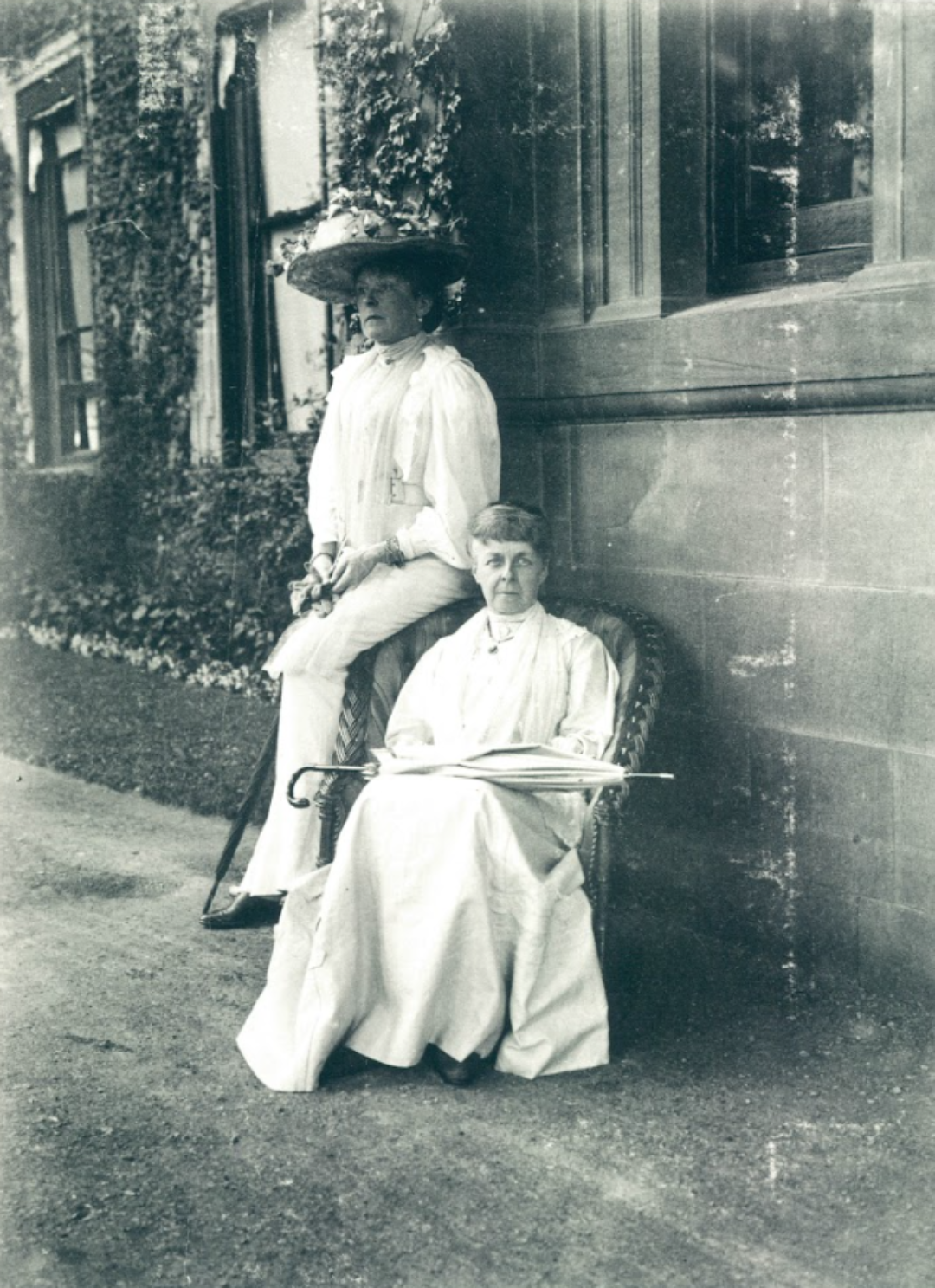To Mr. Portman, indeed, everything connected with dancing is more or less of a bore. He prefers hunting, shooting, or fishing in Norway
The Tatler, no. 78, (24 December 1902), p. 502
Despite the Hon. E. W. B. Portman’s reluctance to polish the parquetry, much merriment was afoot at Hestercombe during the festive season of 1897. On Christmas Eve a ten foot (3m) tree was erected in the Dining Room (now the Gallery Shop) and decorated by Mrs. Portman and her sister-in-law, the Hon. Miss Vesey, this in preparation for the annual servant’s dance. ‘Handsome’ gifts for the head servants and their families were arranged around the tree, courtesy of Mrs. Portman, and the workmen on the estate were presented with joints of beef. The dance was opened by Mr. and Mrs. Portman in the company of family and friends, among them Elizabeth (née Grosvenor), Lady Wenlock (Mrs. P’s mother), the Hon. Miss Vesey, the Hon. Robert Lawley (Mrs. P’s brother), the Hon. Mrs. Maurice Portman (Mrs. P’s aunt) and Mr. and Mrs. L. C. H. Palairet. The much celebrated Somerset and Oxford University cricketer, Lionel Charles Hamilton Palairet was a land agent for the Portman (Somerset) Estate and a close friend of Teddy Portman.
Particulars about the presents distributed that evening are sadly lacking but it is known that on one Christmas some years later Mrs Portman gave Francis ‘Frank’ Curry (1889- 1969), the terraces [Formal Garden] foreman of 3 Park Gate Cottages a red cardigan. This was to make it easier for her to locate him when he was working. (Mrs. Portman suffered from poor eyesight during her twilight years.)
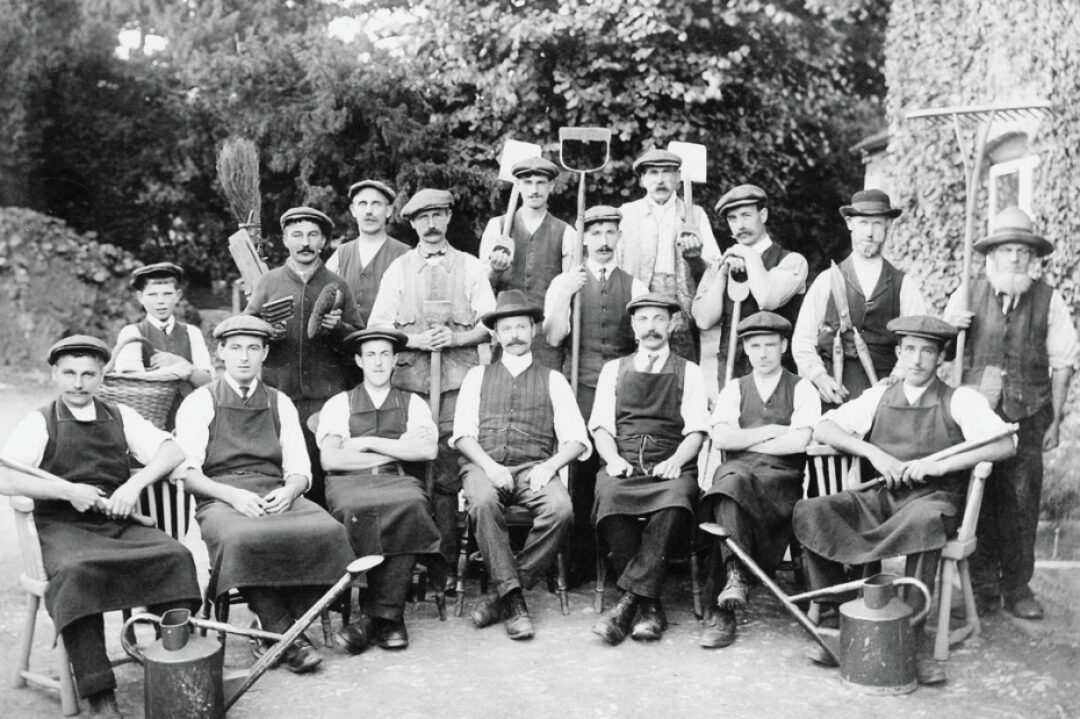
The servant’s dance of 1897 was followed by an even grander celebration. In the words of one Somerset County Gazette correspondent, the soiree of mid-January 1897 was ‘one of the most brilliant gatherings that have ever taken place in Somerset’. It may well have been the social event of the season. The Gazette mentions highly decorated ‘apartments’, a programme of Viennese music, satin ball gowns, tiaras studded with diamonds and sapphires, and a guest list that included the cream of Taunton society. For more details please see ‘From the Archive: Memories of Hestercombe -- The Grand Ball of January 1897’.
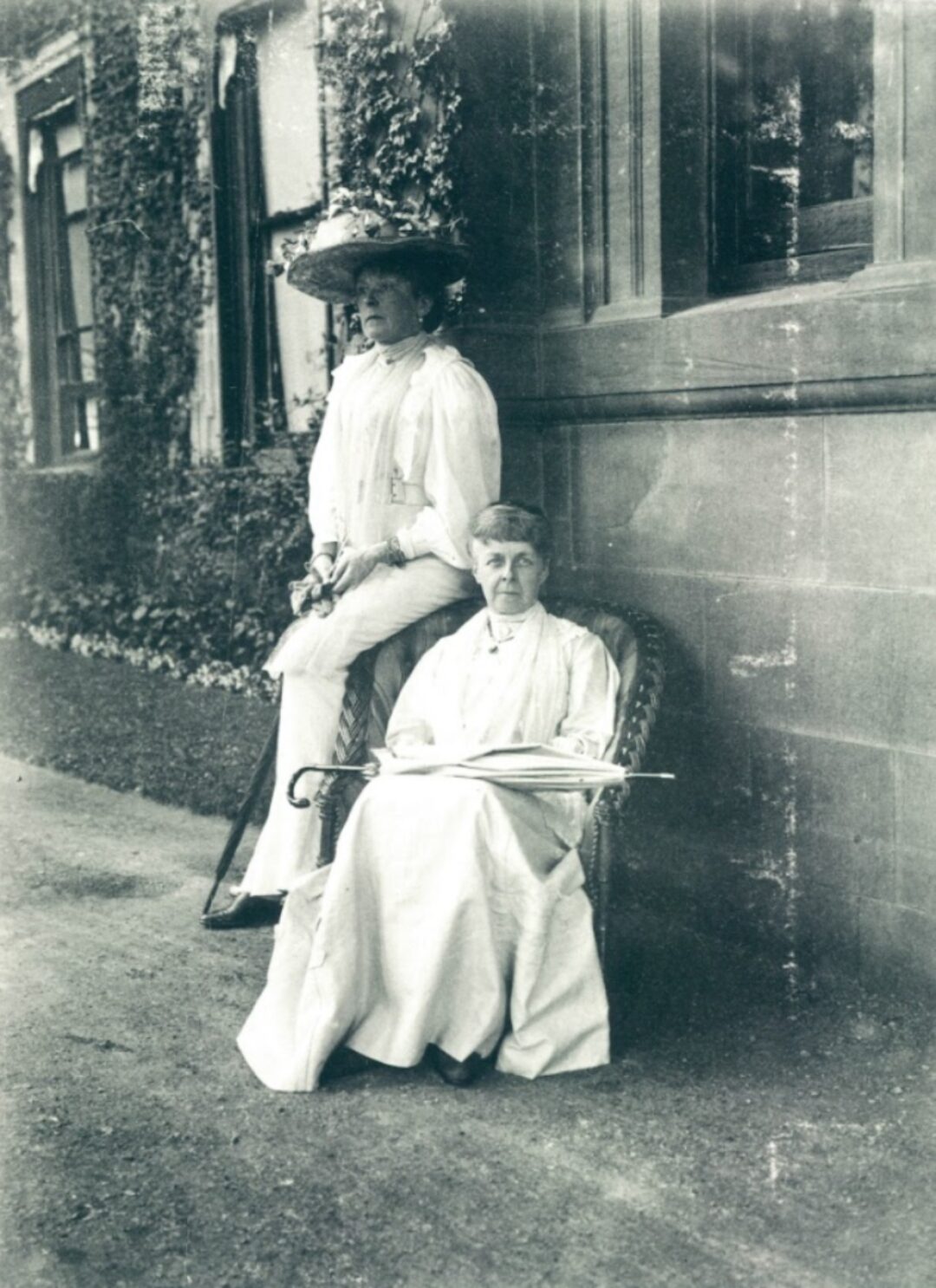
In 1901 the guest list for the annual servant’s ball distinguished between ‘upper servants’ who were allowed two guests each, and ‘under servants’ who could bring but one. The former would have included the butler, housekeeper, lady’s maid and valet; the latter the footman hall boy, kitchen maid, footman, house maids, laundry maids, cook, scullery maid, and stillroom maid. Using the 1901 England Census as a guide these ratios imply a guest count of about fifty inclusive of the Portman family. Constance Mary Portman and her three other sons by her first marriage, Ivo, Thomas and Osbert Vesey, were all present, but E. W. B. ‘Teddy’ Portman was uncharacteristically absent, visiting parents, William Henry Berkeley Portman, 2nd Viscount Portman (1829 –1919) and Mary Selina Charlotte FitzWilliam (1836-1899) for undisclosed reasons at the family seat of Bryanston, near Blandford Form, Dorset. (Mrs. Portman’s first husband was Captain the Honourable Eustace Vesey of the 9th Lancers, second son of Thomas Vesey, 3rd Viscount de Vesci of Abbey Leix, County Laois, Ireland.)
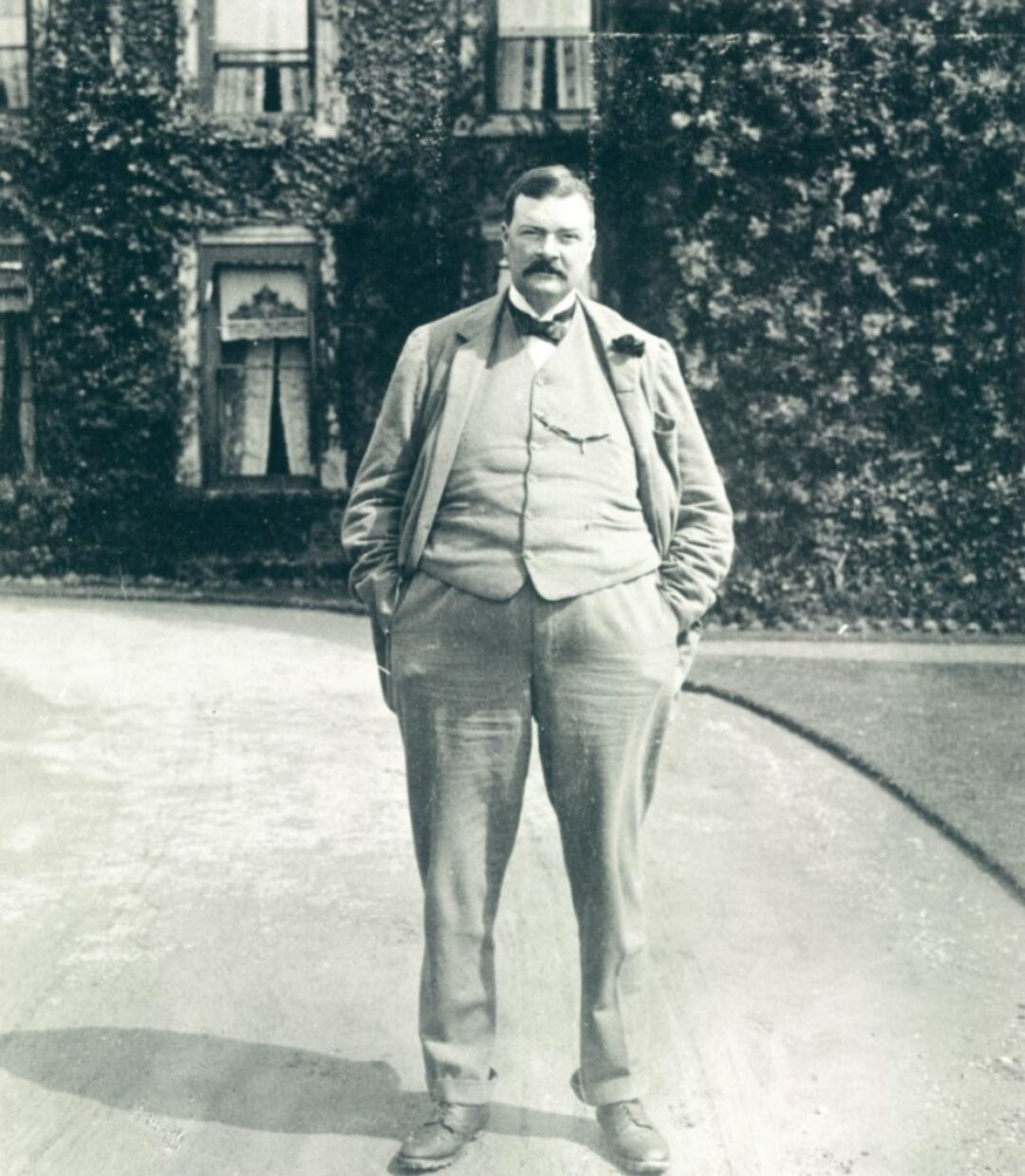
Sixteen-year-old Thomas Vesey was among those who showcased their footwork at the 1901 servant’s dance. His diary for 31 December indicates that he indulged in a litany of New Year’s Eve mazurkas, cakewalks and redowas with the likes of Bath, Mrs. Mabel Palairet, Mrs. Anna Potter (housekeeper), Christy Falconer, Lily Kennedy (lady’s maid), Annie Miller (stillroom maid), Miss Blair, Dolly Chilton, and Mrs. Mary Appleton (cook). The precise identity of Bath, probably a servant, is unknown but Mabel Palairet was the wife of Lionel C. H. Palairet, the much admired Somerset cricketer. Christabell ‘Christy’ Falconer was the only daughter of Hestercombe butler, Allan Falconer of Gotton Lodge, and the future wife of Frank Claud Bradbury, the hallboy who would rise steadily through the servant ranks to become Mrs. Portman’s butler in 1911. Miss Blair and Miss Dolly Chilton were frequent visitors to Hestercombe, presumably neighbours, who were known to socialise with Thomas and Osbert Vesey regularly over games of football, silly cricket and ‘battle’.
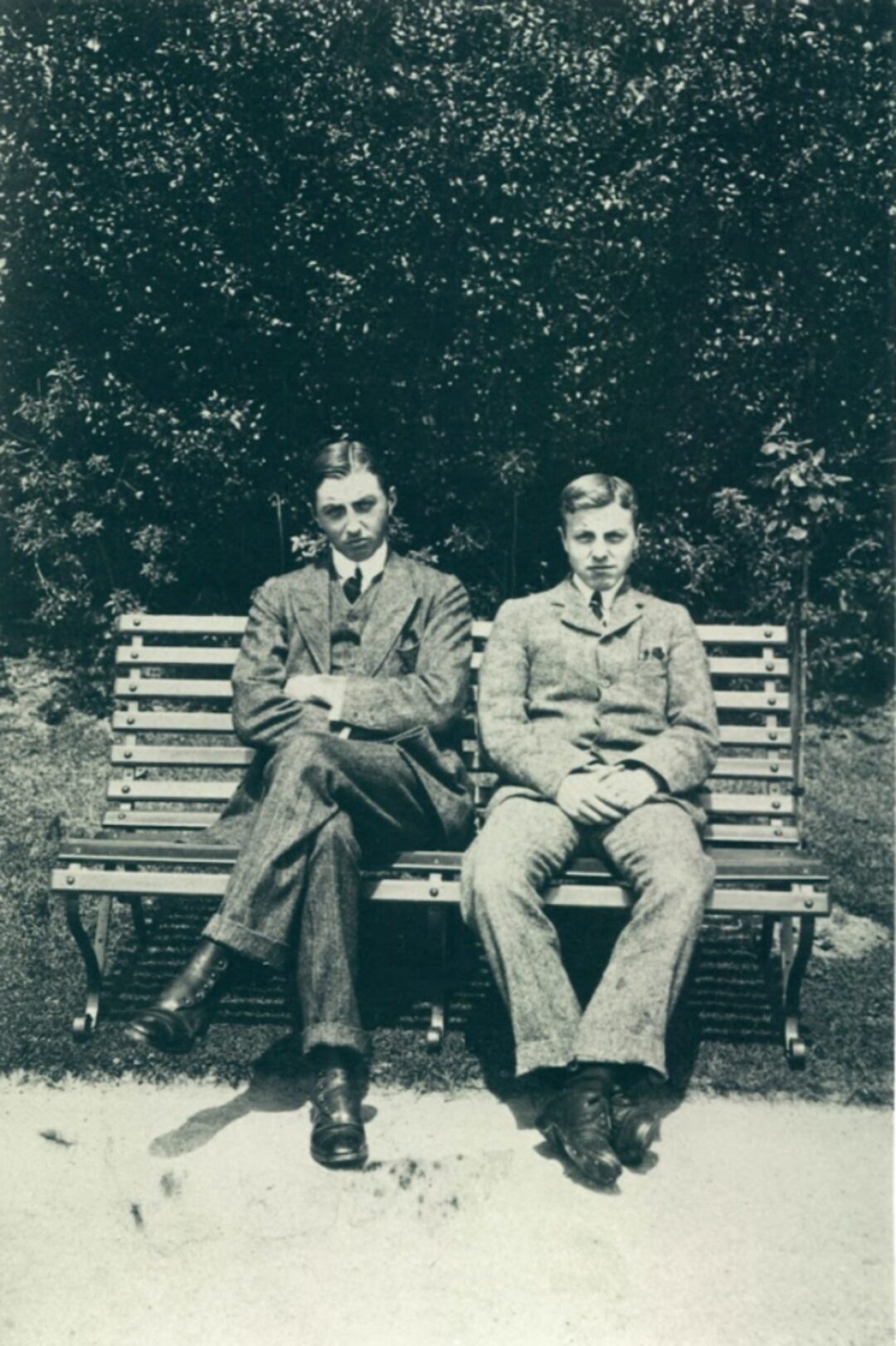
But the Portman’s also brought good spirits to the wider community at Christmas time. On 25 January 1896 the Somerset County Gazette reported on an ‘abundant’ Christmas tea organised by Mrs. Portman for the school children of nearby Cheddon Fitzpaine, but also for various other children attached to the Hestercombe estate. On a ‘bright and happy afternoon’ a ‘well laden and tastefully decorated’ Christmas tree was positioned in one of the schoolrooms to the delight of over 50 children who were presented with ‘pretty and useful’ gifts, each tagged with the identity of the recipient. Mrs. Portman and her three sons did the honours under the watchful eye of Mrs. Portman’s mother, Lady Wenlock. Also present was the Rev. G. F. Unwin, younger son of Samuel Hope Unwin, Rector of Cheddon Fitzpaine, who offered words of thanks for Mrs. Portman’s benevolence. The festive two-hour affair concluded with further gifts of buns, oranges and sweets and three rousing cheers were raised in tribute to Mrs. Portman.
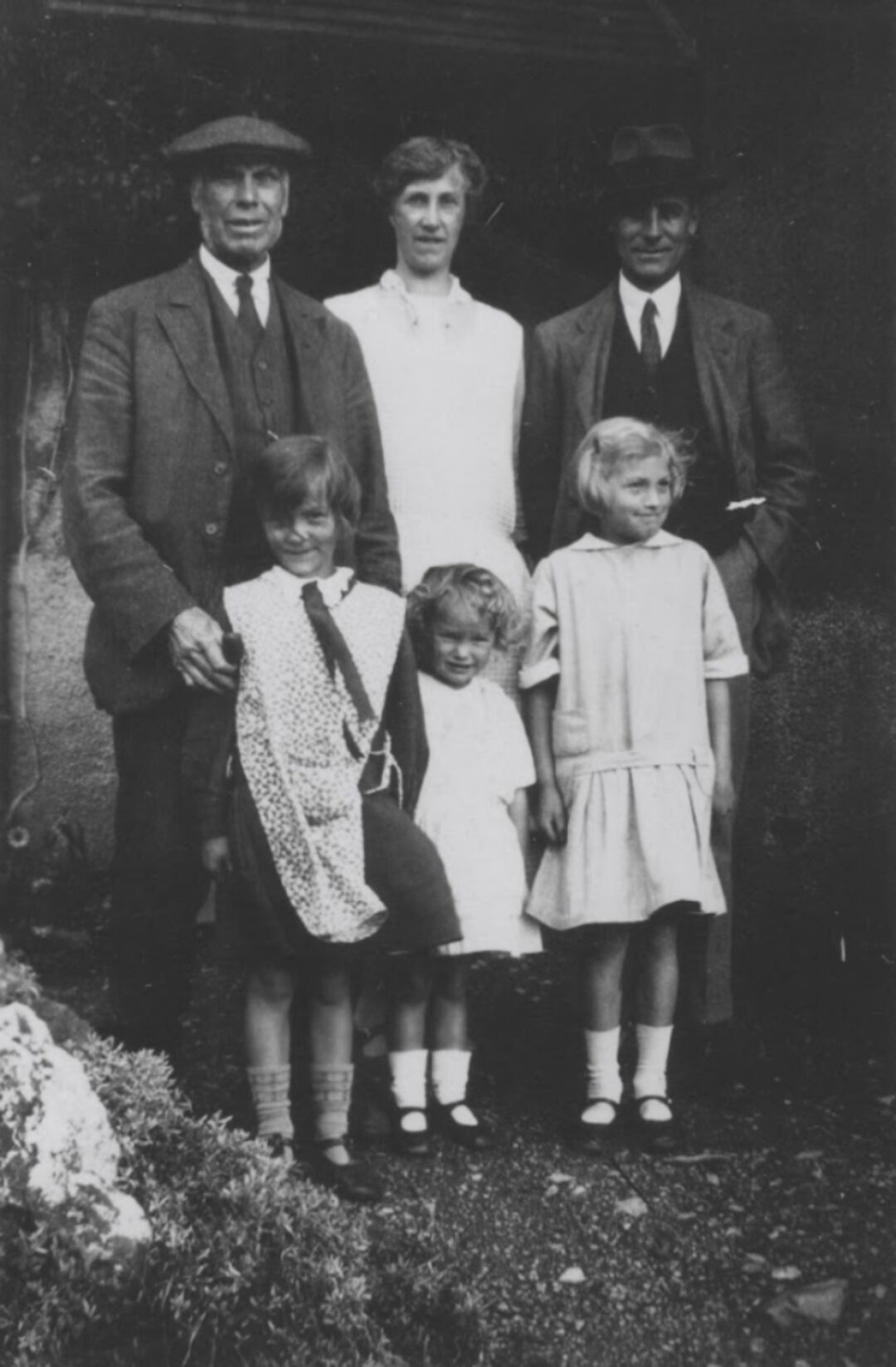
The money for the presents on the Christmas-tree were given by the following : — (1) Hon. E. W. B. Portman's Tree, 1—100 presents; Colonel Welby's, M.P., Tree, 101—200 presents; (3) The Patrons' Tree, 201—300 presents; (4) The Vicar's Tree, 301—400 presents; (5) The Clerical Tree, 401—500 presents; The Wellwishers' Tree, 501—600 presents.
A GRAND CHRISTMAS FOREST IN TAUNTON - FOR THE GOOD OF ROWJBARTON PARISH - A PLEASING SPECTACLE. The Taunton Courier, 13 Dec 1899, p. 5.
In December 1899 a grand Christmas bazaar was held in Taunton, the proceeds of the two-day event to be used for new roads and for the purchase of land to enlarge the schools and playground of St. Andrew’s Church, Rowbarton, in north of the town. The Upper and Lower London Hotel Assembly Rooms, now Marks and Spencer, were duly transformed into ‘a perfect forest glen’ under the capable direction of the Rev. Prebendary Gresley with six ‘monster’ Christmas trees laden with presents positioned around the building and a quiet forest lake (large mirror) arranged against a leafy backdrop of trees, wild ferns and other greenery on the ground floor. A refreshment stall operated by ‘charming young ladies in dainty attire’ beckoned ‘with everything which appealed to refined taste in this direction’ and visitors were invited to enjoy a range of sweets under a mock pagoda, topped by a giant Japanese umbrella. Other curiosities included the costume of a Zulu warrior sent from Cape Town and a reproduction of the lion given by Cecil Rhodes to Paul Kruger, president of the South African Republic, the independent Boer state against which Britain had declared war only two months before. Retail therapy was available at eight amply decorated stalls (muslin, laurel leaves, pot plants etc.) which offered everything from clothing to china, basketry, pottery and pictures and there was a full programme of vocal and instrumental music – including Mrs. Palairet’s Mandoline Band. Gracious! A troupe of minstrels meandered through the forest for additional effect and a well costumed Father Christmas elicited giggles of delight from children and adults alike.
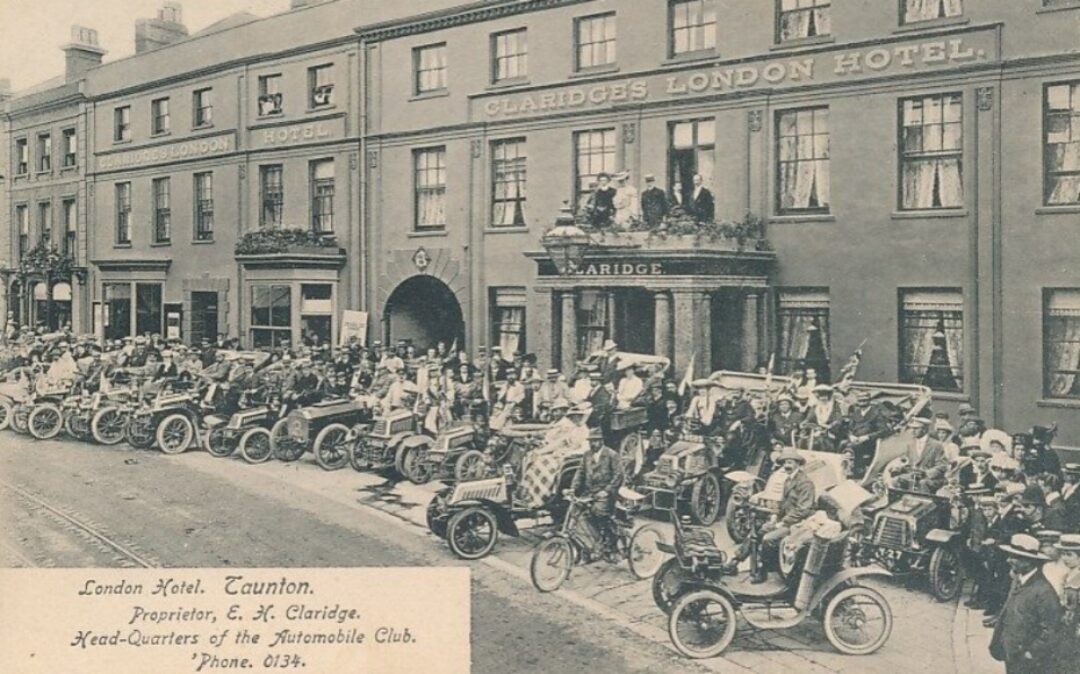
Here till end of next week. Very sorry cannot open bazaar.
A GRAND CHRISTMAS FOREST IN TAUNTON - FOR THE GOOD OF ROWJBARTON PARISH - A PLEASING SPECTACLE. The Taunton Courier, 13 Dec 1899, p. 5.
Among the distinguished sponsors of the Christmas Forest was the Hon. E. W. B. Portman and Mrs. Portman, Colonel Welby, MP, Mr. and Mrs. Wilfred Marshall, and Mr. and Mrs. F. M. Newton. A Tory politician recently retired from the army (Scots Greys), Lieutenant-Colonel Sir Alfred Welby served as MP for Taunton from 1895 until 1906. Organisations championed by the well-respected magistrate Mr. Wilfred Marshall of Norton Manor, included the West Somerset Foxhounds (Master) and the Taunton Orchestral, Choral and Amateur Operatic Societies (President). F. M. Newton of Barton Grange, Taunton, was principal of one of town's most innovative and successful ventures, Newton Electrical Engineering Works (est. 1884). ) Among his achievements was the installation of a state-of-the-art hydroelectric turbine at Hestercombe in June 1895, which brought electric lighting to the estate for the first time. With Wilfrid Marshall, F. M. Newton was a trustee of the Taunton Town Charities.
E. W. B. Portman provided money for 200 of the 600 presents that were raffled off at the grand Christmas Forest bazaar over the next two days bringing about, in the words of one Taunton Courier correspondent, ‘a good deal of merriment’. Mrs. Portman was to have officially opened the proceedings on Wednesday afternoon, but had felt compelled to go to London instead to nurse her sister-in-law, who had recently become ill. Mrs. Portman telegrammed her deep disappointment at the turn of events from the capital, following up with a letter in which she wrote ‘that although unable to be present her thoughts and best wishes, would be with them, and she hoped they would accept an enclosed small cheque’.
In January 1900 when the inmates of the Taunton Workhouse (which provided board and lodging for the poor in return for work) were treated to their annual Christmas party, the Portman family was again among the patrons. The annual event included an afternoon service in the Chapel and in the evening, a ‘substantial’ tea followed by lively pianoforte solos and songs. ‘A special feature of the occasion was a monstrous Christmas tree, which was kindly given by Mr. Trepplin, estate agent to the Hon. E. W. B. Portman of Hestercombe.' Decorated by the Master, Matron and Assistant Matron, the lofty conifer was dotted with candles and surrounded by an abundance of toys, dolls, oranges and sweets which were distributed among the needy children of the Workhouse. Each adult female inmate received a packet of tea, and each male who enjoyed a pipe, a packet of tobacco, after which closing remarks and votes of thanks were offered by the Mayor and the Chaplain, Rev. J. D. Bailey.
The Hon. E. W. B. Portman, the president the institution, followed his usual custom of sending a large Christmas-tree, which was placed in Gould Ward, and was loaded with miscellaneous toys and articles suitable for presents.
TAUNTON HOSPITAL, Taunton Courier & Western Advertiser, 30 December 1908, p. 4.
The Taunton and Somerset Hospital had long been a favourite charity and by 1908 every effort was being made by Mr. and Mrs. Portman and the other gentry of the town to provide the institution’s over 100 patients with a traditional Christmas. The wards were decorated by the sister, assisted by the nurses, creating ‘quite a picturesque effect’ and on Christmas Eve stockings were carefully hung up in the children’s wards ‘just as if they were at home’. Carols and Christmas hymns rang out on Christmas morning followed by a hearty breakfast, and in the afternoon a Christmas dinner of turkey, vegetables and plum pudding, sweets and dessert. The choir of Holy Trinity Church arrived on cue at 4 PM and carols soon resonated in the Conservators and Weaver Wards, accompanied by the Rev. E. A. Ducket (vicar of Holy Trinity and chaplain of the Hospital), the Rev. A. E. Claxton, the Rev. E. H. Van Cooten, the curates, and Mr. W. F. J. Hallett, the lay reader. Rev. Ducket then led a service, which ‘was much appreciated by the patients’. Tea and a late supper followed, as did various diversions including music, each ward being supplied with a piano. The distribution of presents from the Christmas-tree the next day was followed by ‘theatrical performances’ by the nurses.
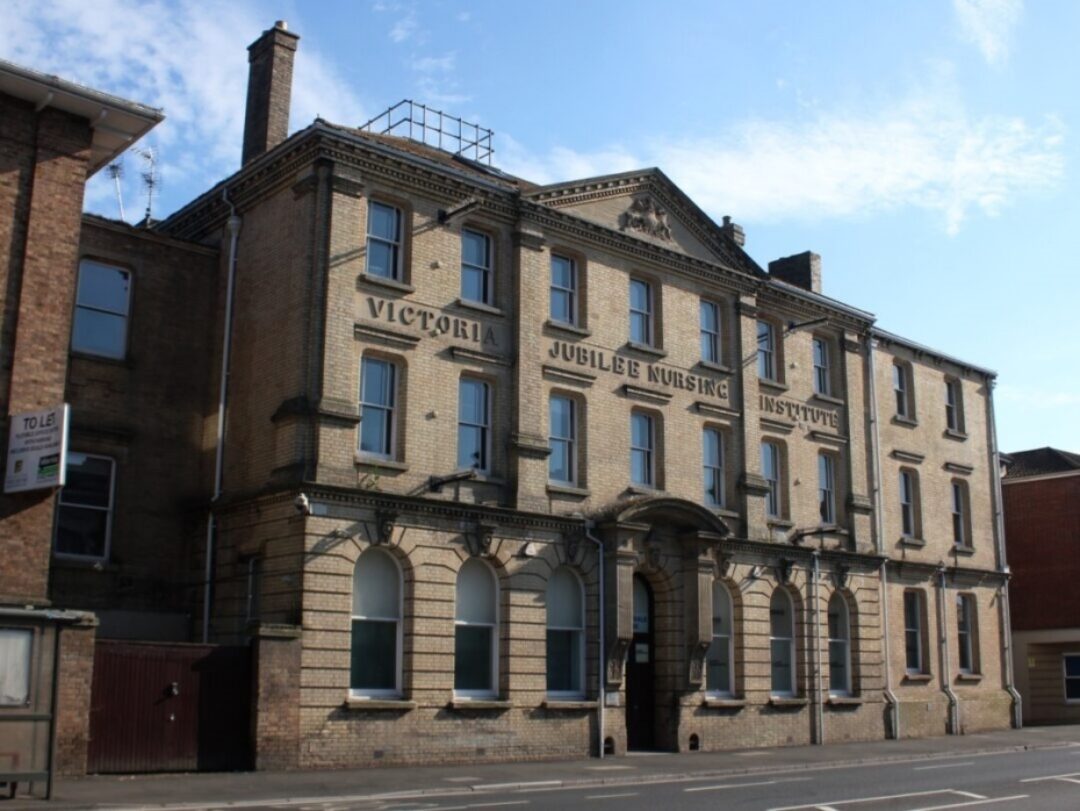
After Christmas, in early January, Mrs. Portman typically visited the Taunton and Somerset Hospital Nursing Institute (b. 1887), which adjoined the west wing of the hospital, to present prizes and certificates to the nurses who had successfully completed their studies in physiology, anatomy and patient care. In 1903 those in attendance, which included Mr. J. E. Wakefield, hon. secretary of the hospital and the Rev. D. A. Ducket, were treated to a tea by Miss Bulteel, the matron. In acknowledging a vote of thanks voiced by Dr. MacDonald, ‘Mrs. Portman, in reply, spoke of the keen interest which she and her husband took in the hospital.’ An inspection was then made of the ‘extensive’ alterations which had recently been completed in the building.
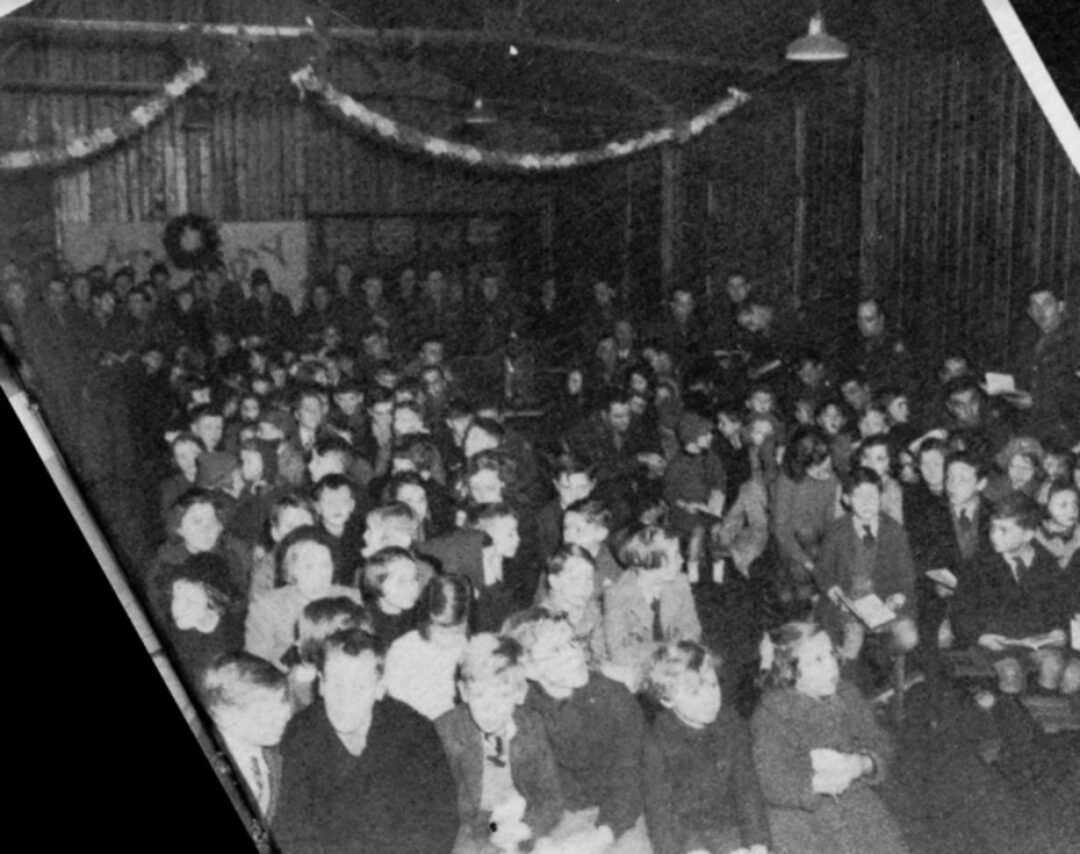
The 1940s were grim years as war raged in Europe and austerity, rationing and labour shortages gripped a fearful nation. Yet Christmas still found a voice at Hestercombe. In December 1943 army personnel from the XIX district US supply services, who had arrived in March of that year, helped stage a 'Kids Christmas Party' in the Hestercombe Reading Room, by now converted into a NAAFI (Navy, Army and Air Force Institution) to provide a canteen, shop and place of recreation for ordinary soldiers.
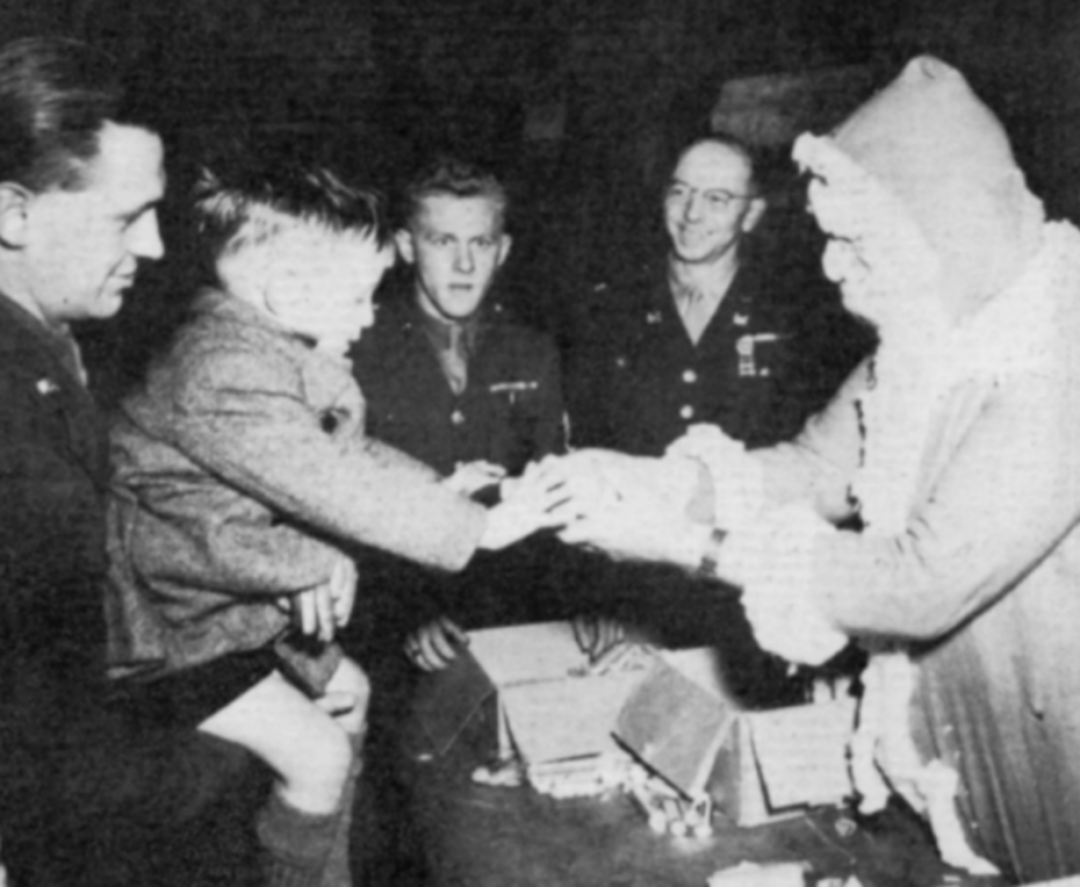
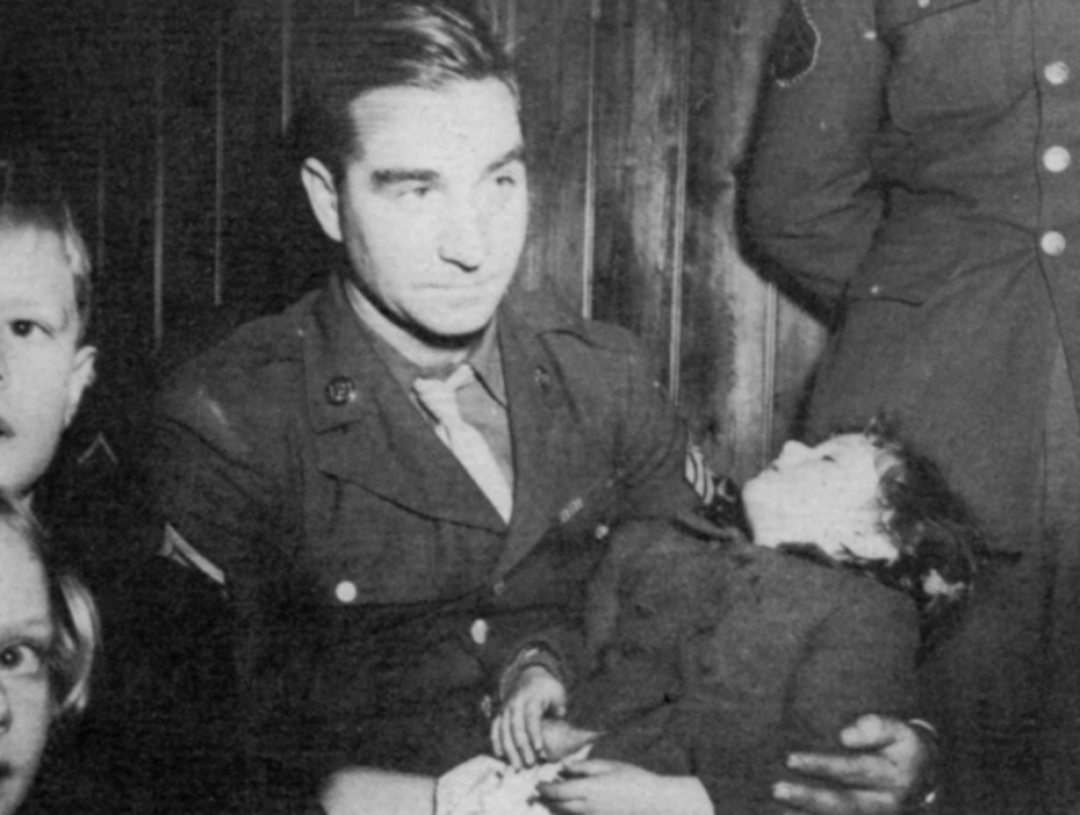
The Edwin Lutyens designed building, with its kitchen and stage proved adequate, if not ideal, for the musical programme and both enlisted men and officers were on hand to chaperone the over 100 excited children who squeezed into the Reading Room that evening to sing carols. Corporal Joshua Jaffe of the US 341st Engineers was among the GIs who made wreaths, swags and other decorations to decorate the interior, Father Christmas made a surprise visit to distribute presents to the children in full regalia, and army vehicles were on hand to transport the children back to their villages at the end of the evening. As the Americans were famously well-provisioned, it is anticipated that no one went hungry that evening.

